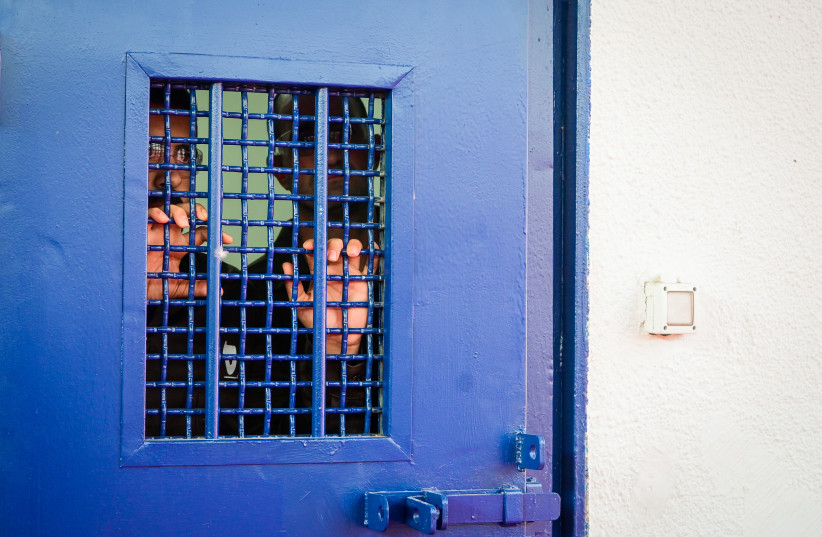While in prison, Palestinian author Basim Khandaqji's book, "A Mask, the Colour of the Sky," written during the author's ongoing Israeli prison sentence, was nominated for the International Prize for Arabic Fiction (IPAF) last month.
Khandaqji, born in Nablus, was arrested in 2004 on charges of terrorist activity at the age of 21. He was convicted with three cumulative life sentences for planning and participating in a suicide bombing at Carmel Market, Tel Aviv.
While in prison, Khandaqji completed his education, studying political science at Al-Quds University.
What is A Mask, the Colour of the Sky about?
Khandaqji's book describes the story of a young archeologist named Nur from the Ramallah refugee camp who adopts an Israeli identification card to join an archeology expedition in the West Bank.
The protagonist assumes the guise of a Jew to try and understand the Zionist mentality. The book depicts the struggle Nur goes through in his attempt to navigate between the two parts of his life.

What is the International Prize for Arabic Fiction
The IPAF began in 2007, is funded by Abu Dhabi's Culture and Tourism Ministry, and is mentored by the Booker Prize Foundation in London.
The IPAF, also known as "the Arabic Booker," is the most prestigious prize in literature in the Arab world. The prize recognizes excellence in Arabic writing and encourages higher-quality literature, as mentioned on the prize's website.
It also works on an international level through the translation and publication of winning and shortlisted novels in other major languages.
In 2020, a group of Arab authors called for the boycott of the IPAF due to it being funded by the United Arab Emirates (UAE) in protest of Abu Dhabi's warming relationship with Israel.
However, despite the protests, the UAE decided to continue creating cultural ties with Israel and signed a cooperation agreement with the Israel Film Fund, as well as the removal of a visa requirement when traveling between Israel and Abu Dhabi.
Implications of the nomination
This nomination is unique since one of the nominees is being held "behind the walls of an Israeli jail," according to Yasir Suleiman, chair of the event's board.
Yasir adds that "the shortlisted works dig deep into the past to excavate the present."
In an interview, the author's brother, Youssef Khandaqji, said that "[Basim] based his (shortlisted) novel on his reading of research and studies about Palestinian history, including eyewitness accounts of some of the prisoners inside and outside prisons, especially the Palestinians living inside Israel."
"The narratives [...] are characterized by in-depth fictional digging in history, in such a way that the recent and distant past intertwine with the present and the future," says Nabil Suleiman, chairperson of the 2024 judging panel
Mr. Khandaqji's nomination for the IPAF already grants him a prize of $10,000, and if he wins, he can win a prize of $50,000.
As was previously reported by The Jerusalem Post, the distribution of writings from inside prison walls is considered an independent crime.
In response to Khandaqji's book nomination, the Israel Prison Service stated that "we do not recognize the book or the identity of its author. If it decided that a terrorist should be rewarded with a prize, it would be impossible to receive it," according to a KAN News reporter.
Hannah Brown contributed to this report.
